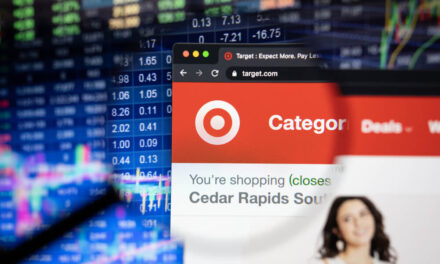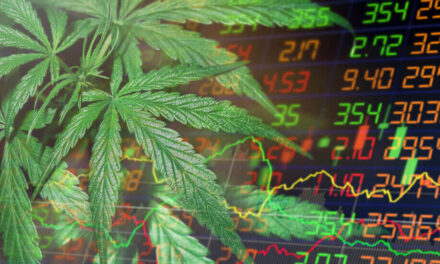The dividend discussion continues in this week’s Investing With Charles.
In response to a reader question, Research Analyst Matt Clark and I show you why dividend growth helps you outpace inflation.
We’ll show you how the king of fast food did it in the 1980s and the two keys you need to spot sustainable dividend growth for your nest egg.
Let’s get started.
Here are the highlights from my conversation with Matt. Watch our discussion in its entirety above.
Inflation and Dividend Growth
Matt Clark: Now, we’re going to talk about dividend growth, and the question for you today comes from Bob. He asked:
How am I supposed to get excited about a 4% dividend with inflation running at 5%? Aren’t I losing money?
That’s a good point. If inflation is running higher than your dividend, are you making money?
Charles Sizemore: That’s a great question because inflation is on our minds for the first time in decades, and we’re seeing the effects.
And the short answer is: “Yeah.”
If you’re buying something where the payout’s fixed, whether it’s a bond or a stagnant dividend stock, you are losing money. You are losing significant money, in fact.
If you’re talking about inflation running at about 5% a year, over the course of 10 years, that’s going to knock a dividend worth $5 in today’s prices to $3 or less. You’re talking about reducing that payout by roughly half in real terms.
Your expenses don’t stop rising year after year. But the income you have to pay for those expenses is frozen in time.
That’s why dividend growth matters and why dividend growth is a lot more important than just raw dividend yield.
I like a high payout, but I am more concerned about what that payout’s going to be 10 or 20 years from now.
Matt: You want to find a stock that has a dividend that rises at least in lockstep with the rate of inflation.
Charles: Yeah, you want it to be better. You want to get richer. The name of this game is to get richer over time, right?
There could be years where inflation is a little bit higher or lower. But over the length of the investment, you want that dividend growth rate to be well above the rate of inflation. If it’s just matching inflation, you’re treading water.
You need it to at least outpace inflation by a little bit to get ahead in life here. And again, we’re talking about the income. We’re not even mentioning capital gains.
If you want to keep your standard of living from sliding backward, you need to at least match inflation. If you want to improve your standard of living, yeah, you’ve got to do better.
Matt: And there are stocks out there that do that. They do match or exceed the rate of inflation. I want to toss out an example: McDonald’s Corp. (NYSE: MCD).
How McDonald’s Used Dividend Growth
Charles: Oh, McDonald’s is a great example because this is not a high-tech stock. This is hamburgers, for crying out loud.
This is one of the most basic businesses in American history. It’s also one of the most iconic. McDonald’s has raised its dividend every year since 1976.
Over that period, McDonald’s has raised that dividend by about 220,000%!
If you annualize it, it’s about 18% a year dividend growth since 1976. Now, inflation was high in the late ’70s, sure, but inflation has not been 18% a year over this period here.
[Editor’s Note: Matt could not find reliable data for the late 1970s, but you can see in the chart below that McDonald’s still grew its dividend by 45,900% since 1980.]
Even over the last 10 years, McDonald's has been able to raise its dividend by about 7% per year. That’s well ahead of what inflation has been. It's below what it is today, but over any reasonable investment time frame, McDonald's has proven it can outpace inflation.
Matt: The key here is, to bring everything together, not all dividends are created equal.
If you're going to have this stock as an income stock, you want to think long term.
2 Keys to Spot a Healthy, Growing Dividend
Charles: And beyond that, you do have to look at the health of the underlying business as well.
At the end of the day, what is a dividend? It’s a distribution of profit. In order to distribute the profit, the company has to earn it first.
How do you know a dividend is sustainable? Look at the earnings history.
Is the company growing its earnings? Is the dividend payout, the percentage of those earnings that are paid out as dividends, still relatively low or at least constant?
If a company pays out a greater and greater percentage of its earnings each year, that dividend payout ratio is getting higher and higher. At that point, you have to question if that dividend growth is sustainable.
If you want that long-term dividend growth, there are two keys:
- First: The earnings have to be there.
- Second: It needs a manageable dividend payout ratio.
Matt: And that dovetails nicely because I'm going to give you a bit of a nugget to lead into what we're talking about next week. Right now, McDonald's’ quarterly dividend is right around what the average share price was for MCD back in 1976.
Charles: It's a funny coincidence.
Matt: It is.
Charles: What you could have bought McDonald's for 46 years ago ... is roughly equivalent. It's about $0.10 away from the quarterly dividend today.
In plain English that means that if you bought the shares back in '76 and you've held them ever since, you're making 400% per year on your original investment on the dividends alone.
We're not even talking about the share price. The share price appreciation, that's just icing on the cake.
[Editor’s Note: You can see MCD’s total return has grown more than 24,000% since 1980 in the table below.]
That's a concept called yield on cost, and we will get into that next week.
Where to Find Us
Coming up this week, Matt will have more on his latest episode of The Stock Power Podcast, so stay tuned.

Don't forget to check out our Ask Adam Anything video series, where Chief Investment Strategist Adam O’Dell answers your questions.
You can also catch Matt every week on his Marijuana Market Update. If you are into cannabis investing, you don’t want to miss his weekly insights.
Remember, you can email my team and me at Feedback@MoneyandMarkets.com — or leave a comment on YouTube. We love to hear from you! We may even feature your question or comment in a future edition of Investing With Charles.
To safe profits,
Charles Sizemore, Co-Editor, Green Zone Fortunes
Charles Sizemore is the co-editor of Green Zone Fortunes and specializes in income and retirement topics. He is also a frequent guest on CNBC, Bloomberg and Fox Business.






